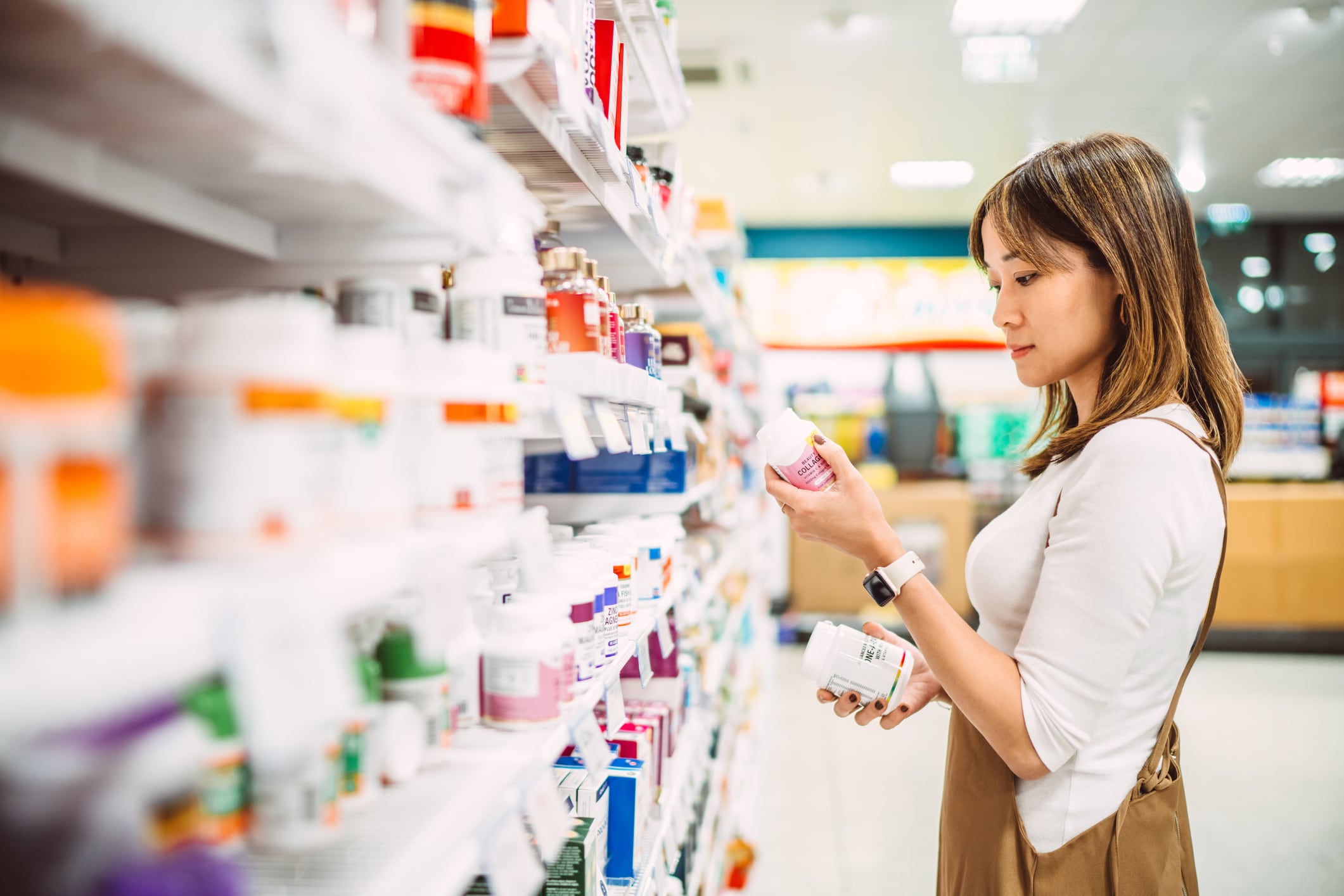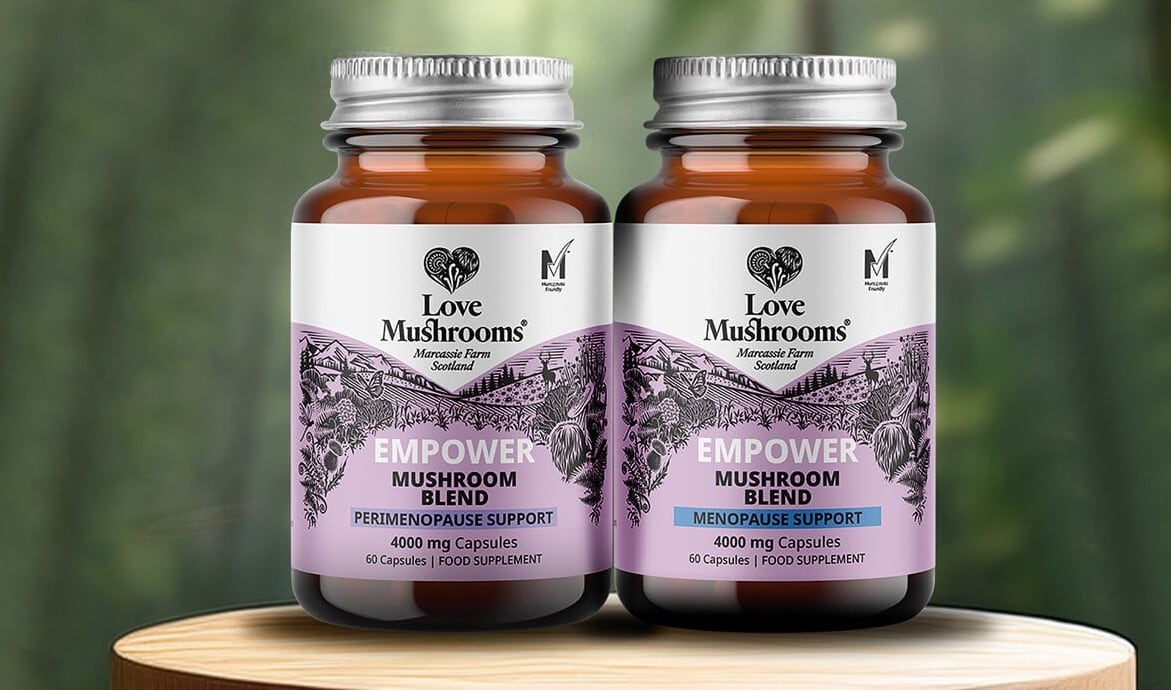Menopause is a natural biological transition, marking the end of a woman’s fertile years, and is not a disease, as confirmed by WHO (World Health Organization) and the NHS (UK’s National Health Services).
However, the Advertising Standards Authority (ASA) and the Medicines & Healthcare Products Regulatory Agency (MHRA) classify any claim reated to treating the symptoms of menopause as a disease treatment claim. The bodies state that only MHRS-licensed medicines, such as hormone replacement therapy (HRT), can claim to treat these symptoms.
These guidelines have led the ASA to call out several supplement advertisements in recent months, especially since the implementation of its AI assistance to hunt out these types of claims.
Most recently, the ASA flagged an Instagram advertisement from supplement brand Dr. Vegan for a multi-nutrient product named Menofriend, which featured the question “Can’t take HRT?” and a statement that “89% of women find Menofriend effective (based on a survey of 996 customers)” and contained a link to buy the product. It also included the caption, “Menopause support that actually works”.
The ASA ruled the positioning of the question, alongside the product’s name and the survey result would be considered by consumers to mean the product can be used as an effective replacement for HRT.
The ruling stated: “Claims to relieve symptoms, or to cure, or to provide a remedy or heal a specific disease or adverse condition of body or mind were regarded as a medicinal claim. Symptoms of menopause were an adverse medical condition.”
The agency’s website advises that the symptoms of menopause are considered conditions that require medical supervision. Therefore, claims to treat these symptoms are likely to be interpreted as medicinal. Even if a claim is authorized, it must not be framed as treating a symptom of menopause.
Gordon Lott, founder of supplement firm Dr. Vegan, took the advertisement down but told NutraIngredients that this red tape was a symptom of a wider issue of overmedicalization of women’s health.
“The ASA decided we were suggesting the product could replace HRT because the advert mentioned HRT,” he said.
“We did not claim our product could replace hormone replacement treatment, and nowhere do we claim to replace hormones, or have we ever done so, but we wanted to convey that this could support the 80% of women who cannot, or choose not, to take HRT during their menopause journey.”
“How is society helping these women if no one can speak directly to those who can’t take HRT? It is part of a growing trend of censorship of menopause and women’s health,” he added. “We want to provide information to women dealing with menopause, but there’s so much unnecessary red tape, and women are being denied the right to access important information as a result.”
‘Cycle of fear’
Jennifer Julian, COO of GenM, the “menopause partner” aiming to raise awareness of women’s health focused brands within retail, agrees with the need for close monitoring of advertising to ensure that no unsubstantiated claims are being made that may highlight products as being able to ‘cure’ symptoms of the menopause. But said the organization shares the frustrations expressed by food supplement brands that are “fearful of the ASA picking them up on any mention of the menopause, creating a cycle of fear and lack of investment in creating exciting and vibrant advertising campaigns for midlife women, making them feel isolated, unseen and underrepresented across media.”
“By viewing menopause solely through a clinical lens, we risk alienating the 15.5 million women, and one billion globally, who are currently experiencing menopause and actively seeking everyday support,” she said, referring to GenM’s UK Visibility Report 2024, which surveyed 2,000 UK respondents.
The research shows that 87% of women report feeling overlooked and underserved by brands and retail, and two-thirds say they cannot find what they’re looking for.
“This narrow view is making it incredibly hard for both brands and retailers to confidently show up for the menopausal consumer and harder still for women to access the support and products that could improve their lived experience,” Julian added.
She noted that overzealous marketing claims have left women feeling confused and frustrated and ultimately lead to greater mistrust.
“The problem now is that the negative connotations around any ‘-washing’ terms, be it greenwashing, pinkwashing or indeed menowashing, means that even the most trailblazing brands are now paralyzed with fear, stifling innovation and impacting product availability for menopausal consumers—the last thing that they need,” she said.
GenM provides guidance on authorized health claims, such as supplements that help to ease or relieve one or more of the 48 signs of menopause, including the contribution to normal cognitive and neurological function (iodine), maintenance of skin, hair and nails (zinc) and the regulation of hormones (vitamin B6). It also helps brands talk about these claims within the parameters outlined by the National Health Council (NHC) and the European Food Safety Authority (EFSA).
GenM’s MTick certification aims to provides consumers with a symbol of trust, aiding shoppers to identify that the products that could support them during this life transition.
Advertising customer reviews
Kristy Coleman, legal director at Ashfords law firm, noted an important element in this ruling was the use of a customer review.
“Brands often assume that if a statement originates from a user, they are insulated from regulatory responsibility,” she said. “That is not the case. Under the CAP Code, once a testimonial or review is shared by a brand, whether on product pages, social channels or in advertising, it becomes part of the marketing communication and is treated as if the brand had made the claim itself.”
This means medicinal claims are off limits, even if a consumer wrote them. Survey statistics must also be robust and representative, and highlighting only positive feedback could be problematic.
“In short, user-generated content stops being ‘user content’ once a brand deploys it in marketing,” she said.





